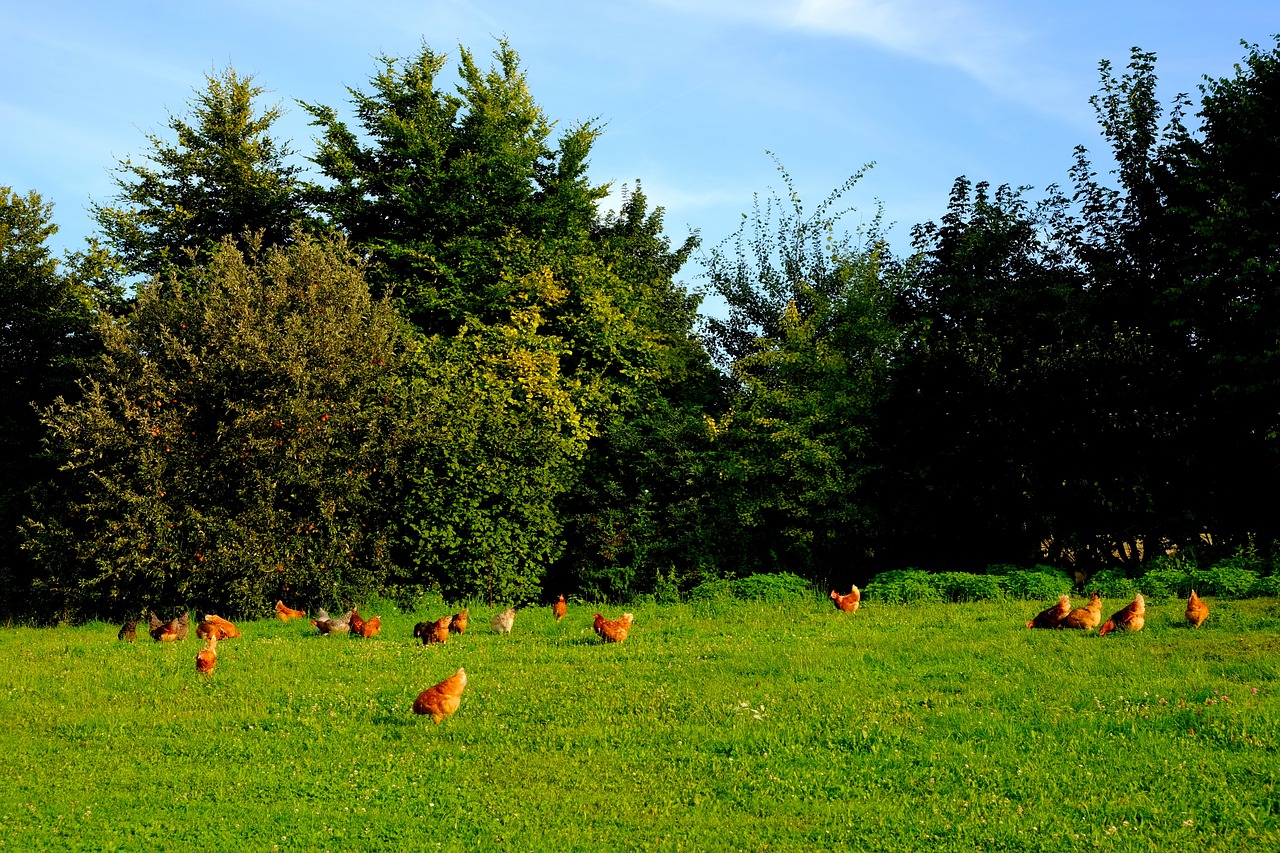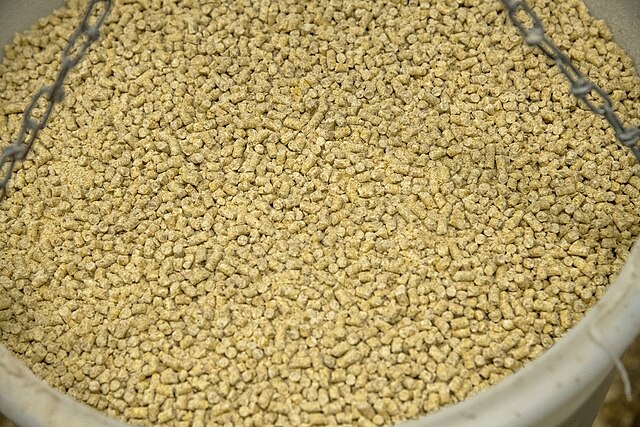We need to bust these chicken feed myths, otherwise your flock will not receive a nutritionally-balanced diet.
Myth 1: Feeding free range chickens
A common misconception is that if they free range they will be getting everything that they need to keep healthy and productive. This might be the case if you can take them to a new area almost every day, so that the plants and insects can recover where they have ranged and they have a fresh set of choices.

But they are not always to be trusted not to be distracted by un-nutritious plants. It is too haphazard to expect that your pasture will provide the right balance of species, minerals and other ingredients. So it is advisable that they are fed a carefully balanced feed as well, to ensure the right proportion of protein, carbohydrates, vitamins and minerals.
Myth 2: Feeding layers
If you are keeping chickens for eggs, consider what goes into making an egg. Most modern chickens are bred to create an egg every 26 hours. An egg is made of water, protein and other nutrients and covered by a hard shell. In order to be able to create this egg, your hen has to have all the ingredients ready in her body. Some smallholders think it’s enough to allow the flock to free range and then give them some supplementary mealies or other grains and seeds. Again this is unlikely to provide the right proportions to meet their nutrition needs.
Myth 3: Growing fodder for chickens
Another myth is that you can save money by supplementing the feed by growing fodder for the chickens. This creates a great deal of extra work, and while leafy greens are a tasty treat, they are not going to provide enough protein or carbohydrates. And the hens don’t actually eat less feed. Another option is to cut weeds to feed the chooks. This may be a free source of food and will give them some variety but they will still need the usual amount of feed.
Myth 4: Another chicken feed myth
Another of the chicken feed myths arises when some keepers think that if they feed their chickens scraps, they will eat less feed, which saves money. And this is true. However, scraps such as bread and pasta, which chickens enjoy, are not healthy for them in large quantities. They lead to obesity, which in turn creates other health problems and a drop in production.
Myth 5: Fermenting feed
There is also the concept of fermenting the feed. It is thought to make it more nutritious, so the hens will need less. While there is evidence that fermenting makes some aspects of the feed more bioavailable, there is not much proof that the chickens eat less of it. It also requires careful management, otherwise it goes sour and the chickens will not eat it.
Myth 6: Limit time and amount of feed
Another practice is to only feed at certain times and in certain quantities. What happens then is that the hens will binge when the food is available. It also means that the dominant members of the pecking order will not leave enough for those lower in the hierarchy, who will then suffer a loss of condition and productivity.

Myth 7: Make your own feed
There is also the old idea that you will save money if you buy all the ingredients and make your own feed. This does not make sense when one considers the wholesale prices commercial manufacturers will pay for ingredients. They will also have large machinery to mechanise the whole process.
Ways to save feed
We are all cost conscious in these difficult times, so rather consider how you can prevent waste.
- Generally pellets are less wasteful than mash. Look at your feeders and check if there are waste-reducing feeders available.
- A common problem is that wild birds, along with rats and mice, are getting an unfair share of the chicken feed. Examine your coop to see where you can prevent these freeloaders from getting in.
- Deworm your flock regularly, so that you are feeding the chicken and not internal parasites.
- Shop around and compare protein content, as well as prices.
- Storing feed correctly includes ensuring that insects and rodents are not able to get at it.
- On the other hand good ventilation ensures that you don’t have a problem with too much humidity and the danger of mould developing.
- Only buy in bulk if you can store the feed safely.
To read more about poultry click here.


It’s a bit of a combined effort from our editorial team, with additions and editings as we went along. Why?